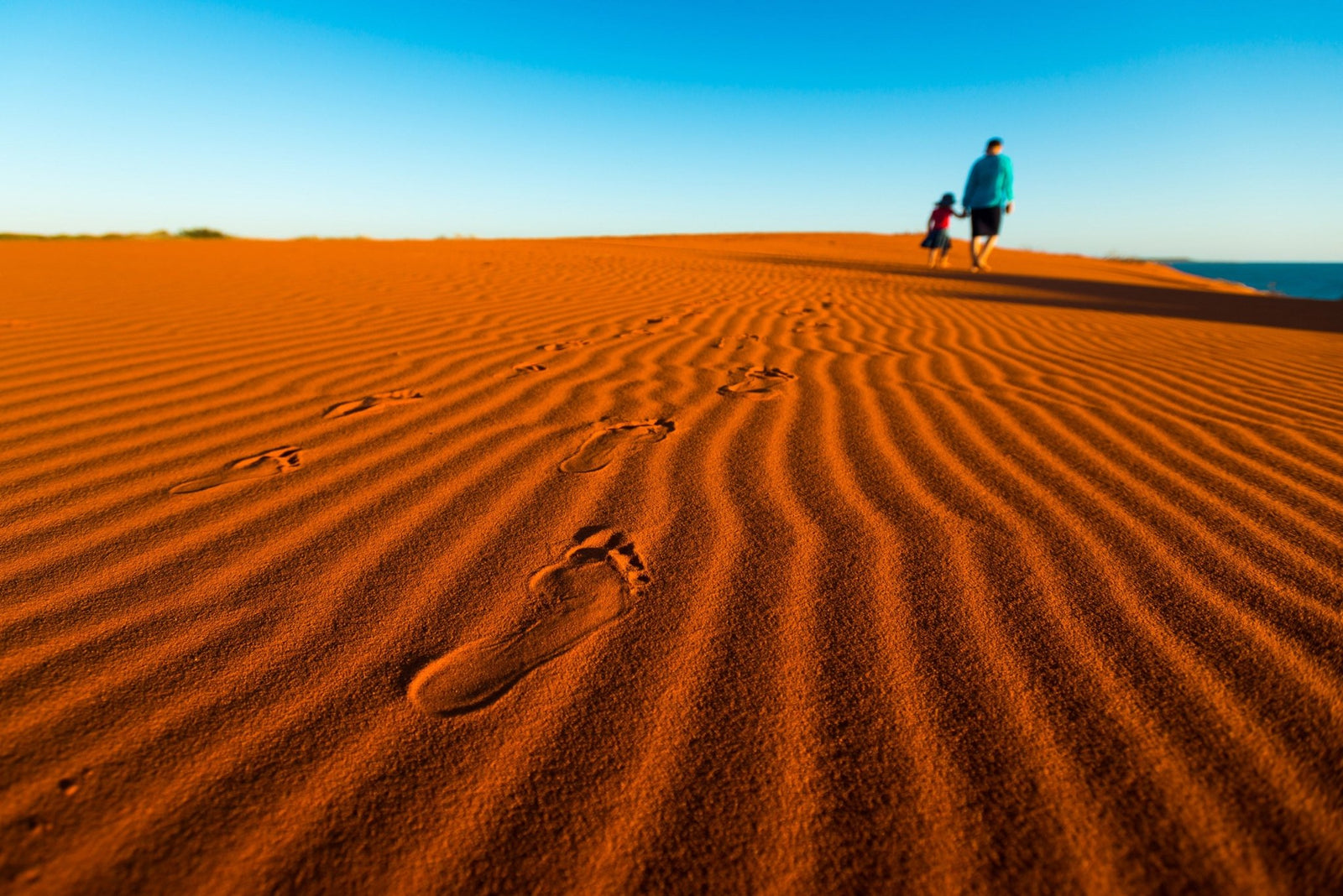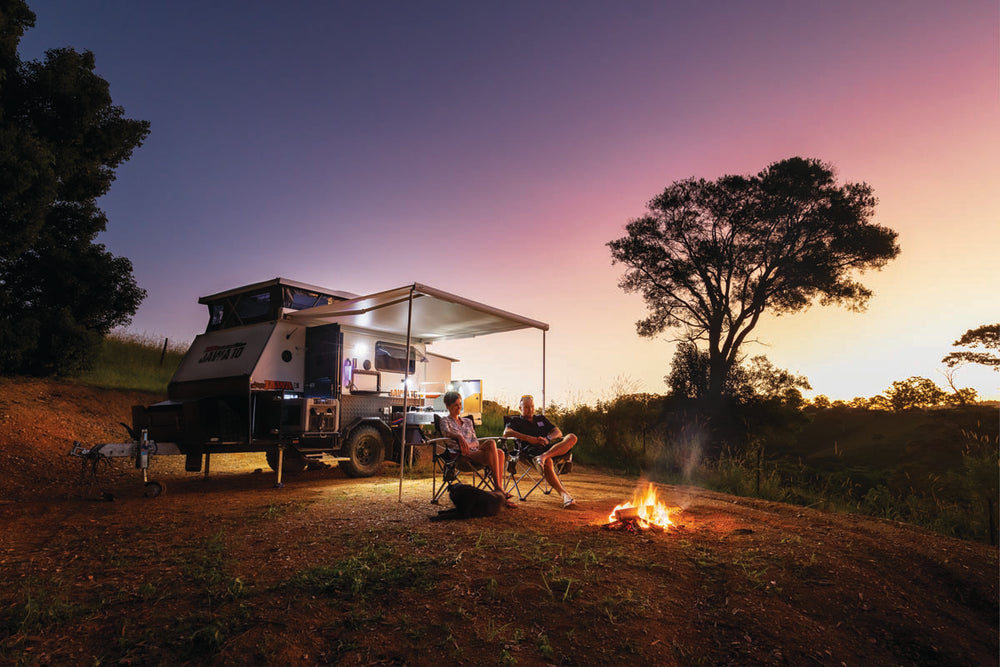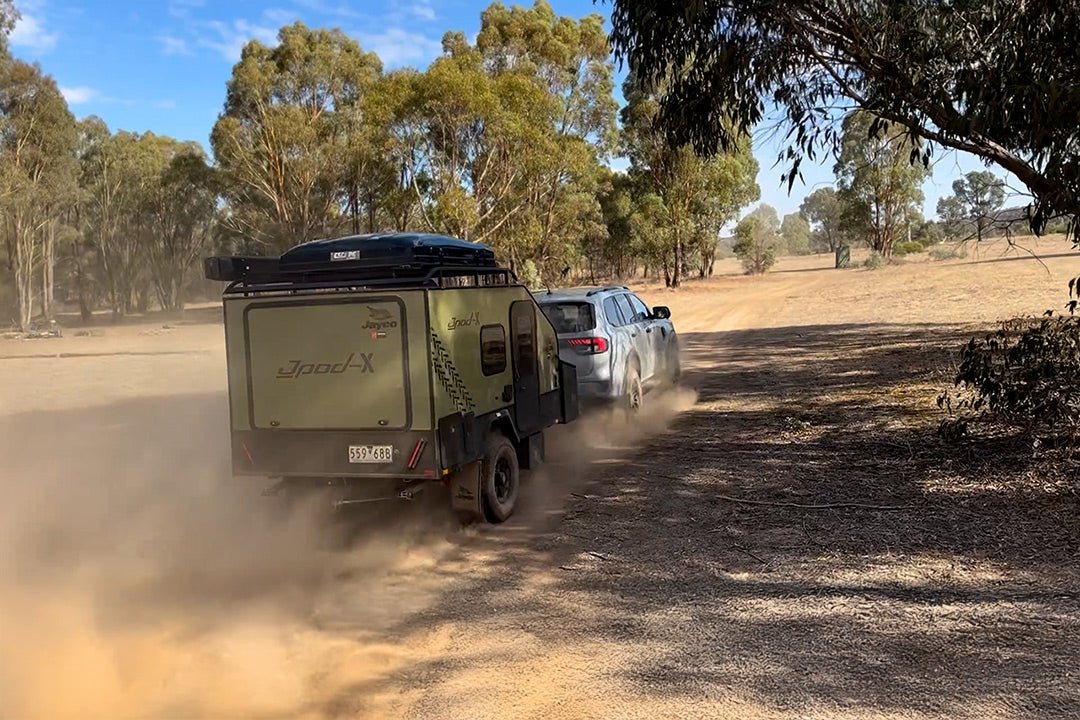Reduce your travel footprint

As travellers, how we shop, drive and camp affects the precious places we journey so far to experience. The choices we make as soon as we hit the road can be positive too, and it all starts with using less: less water, less fuel, less pollutants and less plastic.
The upside for savvy travellers is that by creating a softer travel footprint, you’ll not only protect local environments and wildlife, you’ll save a stack of money as well.
To improve your stamp on the world in 2019, adopt these 10 habits and feel better about how you explore.
1. POWER DOWN
Before you hit the road, take the time to make your rig as self-sufficient as possible so that you can escape the need to tether yourself to mains power in a caravan park every night.
Solar panels and a generous bank of deep-cycle batteries is just the start (you might want to also invest in a micro wind generator). Since you’ll be making and using your own power, you’ll want to make it stretch as far as possible by switching to LED lights and the most energy-efficient appliances you can afford, including fans and heaters.
Reconsider your need for those power-hungry home appliances — coffee machines, bread makers and microwaves. Charge your mobile phones and laptops while you drive, and save on heating by taking shorter (maybe cold) showers and using only cold water to wash your clothes.
All of this will not only save you a fortune on caravan park fees and generator fuel, but your quiet bush camp neighbours will love you for it.
2. SHOP SMARTER
There is nothing more beneficial and basic to protect the environment than refusing plastic bags — especially the ones you are allowed to buy at the checkout. But this is only the first step.
Choosing plastic-free food and groceries is the next. Items packaged in recyclable bottles, tins and cardboard cartons and boxes are infinitely more Earth-friendly than plastic, which is difficult to recycle and never biodegradable.
This year, I’ve accepted the challenge to switch to one better-packaged product every time I shop, starting with recycled, unbleached paper products (think toilet paper and paper towel) and filling my own mesh drawstring bags with unpackaged fruits and vegetables that I get to select.
3. STAY COMMITTED TO RECYCLING
Tracking down recycling bins in remote Aussie destinations is not always easy, but those great habits you have at home need to be carried into the outback, too.
Staying committed to recycling means having to store your tins, glass bottles and jars, cardboard and newspapers until you hit town. It’s not only one of the very best things we can do as travellers, but it also forces us to take stock of just how much waste we are responsible for on a daily or weekly basis.
Before you leave on any road trip, remove and recycle as much excess packaging as you can from your groceries.
If space is at a premium and you are headed somewhere remote, consider switching to crushable aluminum beer cans and compact wine casks instead of space-hogging glass bottles — at least while you are out in the wild.
Dead batteries dumped on the roadside are an environmental nightmare, and it’s all too tempting to abandon them when disposal points are a long drive away. In Australia, 70,000 car batteries run out of puff every year, but the good news is that they are 98 per cent recyclable and if you do, you’ll be keeping 2L to 3L of toxic sulphuric acid and lead out of the environment.
Two thirds of worn-out Aussie tyres end up in landfill too, but they are easy to recycle as well. To find out where you can dispose of tyres and batteries, visit Planet Ark’s website and simply punch in your location, or head to the nearest council rubbish disposal station.
On the subject of recycling batteries, Aldi supermarkets have dedicated bins for disposing of AA, AAA, C, D and 9V types of batteries (including both rechargeable and non-rechargeable).
You can take computer batteries to Battery World outlets, and any good phone retailer will accept old mobile phones for recycling.
4. STOP BUYING SINGLE-USE PRODUCTS
Innovative portable camping products have been making disposable batteries redundant for years: solar torches, kinetic watches and USB-rechargeable gadgets of all kinds. We just need to start using them.
2019 is the year to stop buying single-use batteries and other one-time-only, throwaway containers, especially those convenient little butane stove canisters that are so popular with travellers for quick-stop cooking. Instead, use only refillable gas bottles to fuel your cooking and switch to solar lights and solar-powered device charging wherever you can.
5. SLOW DOWN
Use less fuel, create less carbon emissions and save yourself a bundle simply by slowing your travels, reducing your speed and covering fewer kilometres each day.
Reconsider what’s on your roof and see if you can reduce your vehicle’s drag. Keep your tyres inflated to the maximum recommended pressure on the bitumen and service your vehicle regularly to keep it running smoothly. Whenever you can, fill up your tanks with bio-diesel.
6. HOARD YOUR WATER
Being careful with water ensures longer stays off the beaten track, but it’s also good for the environments we camp in, too. Shower less, save the laundry for the next holiday park and make peace with the dust on your rig.
Cutting back on the amount of soap and shampoo you use in the shower results in quicker washes and much less waste water that you need to store on board. It also cuts the amount of detergent being released into the environment.
To help with your hoarding, install water-saving showerheads and low-flow taps in your rig, and never miss a rain shower: rig up your RV awning to catch and channel rainwater directly into your water tank or jerry cans.
If you have a shower on board, use a bucket at your feet to capture the water that flows while you’re waiting for the hot water to kick in and use it to fill your hand-operated washing machine. Long-term, consider modifying your rig to redirect grey water from the sink and shower to flush your toilet.
7. EAT LOCAL AND ORGANIC
Consider your food’s fuel bill. Buying locally-grown food with fewer food miles slashes the amount of fuel required to transport and refrigerate it. You’ll enjoy fresher, more nutritious and tastier produce and support local farmers wherever you go.
Wherever possible, choose healthier, organic food that uses fewer fossil fuels to produce, uses no energy-intensive artificial fertilisers, pesticides and chemical feeds, and contributes less nitrogen into the environment, thanks to the absence of fertilisers.
8. CLEAN GREEN
Make 2019 the year you switch to natural, biodegradable personal and washing products: soap, shampoo, sunscreen, kitchen and laundry detergents too. Not only are they better for your health and wellbeing, but they are also kinder to the places they end up in.
Vinegar and bicarbonate of soda are two of the cheapest, safest ingredients around and they are all you need to clean benchtops, toilets, showers and floors. Sprinkle any caravan surface with bicarb, spray with a 50/50 blend of vinegar and water, watch it fizz, then wipe or scrub clean.
When mothballing the caravan after a big trip, spray and wipe all hard surfaces with vinegar mix, then follow with a mould-resistant blend of 1/4 tsp of clove oil in 1L of water and leave to dry.
9. LOVE AUSSIE OP-SHOPS
Just about every town in Australia has one and they are chock-full of bargains that make the hunt for clothes, kitchen gear, sporting equipment, books and more, so much fun!
Shopping at and donating to charity shops not only keeps lots of useful items out of landfill, but also halts our demand for new products, is kinder to the environment and saves you lots of money. Volunteer workers at op shops are also some of the friendliest locals you’ll ever meet and the best people to quiz about top things to do locally.
10. CHANGE YOUR PARK HABITS
Just about every town in Australia has one and they are chock-full of bargains that make the hunt for clothes, kitchen gear, sporting equipment, books and more, so much fun!
Shopping at and donating to charity shops not only keeps lots of useful items out of landfill, but also halts our demand for new products, is kinder to the environment and saves you lots of money. Volunteer workers at op shops are also some of the friendliest locals you’ll ever meet and the best people to quiz about top things to do locally.







